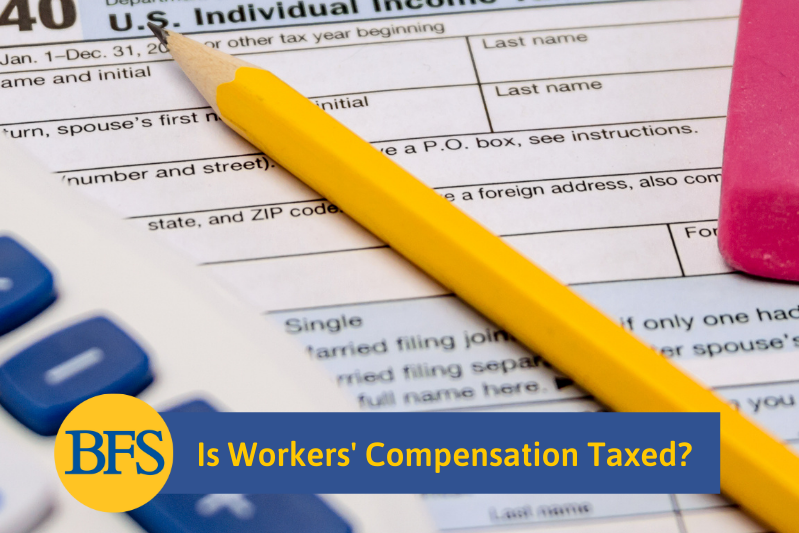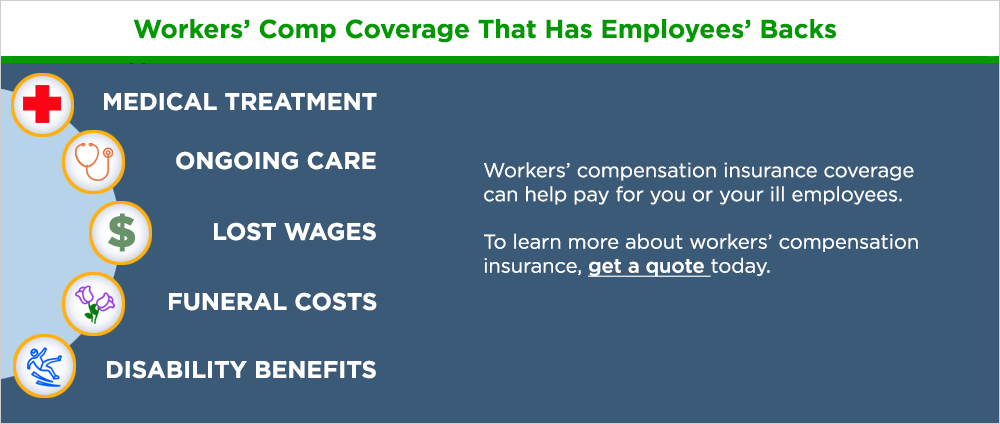workers comp settlement taxes
Workers compensation settlements are fully tax-exempt if paid under the Workers Compensation Act. Whether you have received weekly payments or a lump sum federal law does not allow it.

Are Workers Compensation Settlements Taxable
In fact workers compensation settlements and payments are tax-exempt under the the Workers Compensation Act.

. Are Workers Compensation Benefits Taxable. You retire due to your occupational sickness. This tax-free status applies to monthly benefits checks lump sum payments settlements and payments made to the surviving spouse or dependents of someone who died in a work-related incident.
No workers compensation benefits are not taxable. Generally speaking no workers comp settlements are not taxable at the federal or state level. Workers compensation benefits and settlements are fully tax-exempt which means you do not have to pay taxes.
One national study by Martindale-Nolo indicates that almost three-fourths of workers receive some payout on their claims. The general rule of taxability for amounts received from settlement of lawsuits and other legal remedies is Internal Revenue Code IRC Section 61 that states all income is taxable from whatever source derived unless exempted by another section of the code. If you are also receiving Supplemental Security Income SSI or Social Security Disability Insurance SSDI benefits a portion of your workers.
The quick answer is that generally workers compensation benefits are not taxable. Tax Implications of Settlements and Judgments. Workers compensation benefits do not qualify as taxable income at the state or federal level.
Wages and salary earned after returning to work with a partial disability and while still receiving benefits from workers comp or another program is fully taxable as income. Reporting work accidents and occupational exposures. Presently injured workers do not have to pay income tax on indemnity benefits.
IRC Section 104 provides an exclusion from taxable income with. You need to go into this realizing that workers compensation isnt like winning the lottery. Is worker comp Settlement considered income.
This should not be confused with other benefits you may receive such as unemployment benefits which are fully taxable or Social Security disability which may be taxable. The short answer is no workers comp payments are not reportable as income on a federal or state tax return. The one exception to this rule applies if youre also receiving benefits through Social Security Disability Insurance SSDI.
You are not subject to claiming workers comp on taxes because you need not pay tax on income from a workers compensation act or statute for an occupational injury or sickness. As long as its part of your workers comp benefits you wont get taxed. In most cases they wont pay taxes on workers comp benefits.
Navigating disputes with employees. The average workers comp settlement is 21800. Your workers comp settlement may still affect your tax.
Do you claim workers comp on taxes the answer is no. It doesnt matter whether youre receiving monthly payments or a lump sum settlement. Amounts you receive as workers compensation for an occupational sickness or injury are fully exempt from tax if they are paid under a workers compensation act or a statute in the nature of a workers compensation act.
Thus workers comp settlements are not taxable both at the state and federal level. South Carolina workers compensation cases are far from being just gravy for employees. This means you do not have to pay federal or state taxes on them.
It doesnt matter if theyre receiving benefits for a slip and fall accident muscle strain back injury tendinitis or carpal tunnel. In Florida regarding a workers compensation settlement usually there is no tax withholdings taken from the settlement. Workers compensation benefits are not normally considered taxable income at the state or federal level.
According to this IRS publication Amounts you receive as workers compensation for an occupational sickness or injury are fully exempt from tax if they are paid under a workers compensation act or a statute. The lone exception arises when an individual also receives disability benefits through Social Security disability insurance SSDI or Supplemental Security Income SSI. This pronouncement is produced in relation to a presentation in which the situation of a worker who suffered an accident at work is exposed being declared 90 of disability by the Mutual de.
The Internal Revenue Service SII in Ord. According to the Internal Revenue Service IRS workers comp settlements under federal law do not qualify as taxable income for state or federal levels. Benefits for injured workers.
If this is an issue Kaplan Lawyers may be able to structure a workers comp settlement to lessen the offset and lower your taxable income. Compensation from workers comp earned from occupational injuries or illnesses is fully tax-exempt provided the insurance carrier adheres to state workers compensation laws. Workers Compensation is in the same category of non taxable.
However retirement plan benefits are taxable if either of these apply. However if you are an injured worker and you go back to work on light or limited duty you will pay taxes on any wages earned while working. In some cases the Social Security Administration SSA may reduce a persons SSDI or SSI so.
This is one of the questions we often hear from injured workers who come to the. Lump sum settlements from workers compensation cases do not count as taxable income either. But that doesnt mean youll be free from taxes if youre on workers comp.
When filing taxes you do not need to add workers comp to your earned income. Generally you dont have to pay state or federal taxes on your workers compensation settlement or award. Most workers received between 2000 and 20000.
If youre injured at work and receive payments to cover your medical expenses loss of wages and painsuffering they arent taxable in most cases. Just Because the IRS Cant Take It Away From You Doesnt Mean the Insurance Company Wont. The United States Tax Code Section 104a1 specifically excludes workers compensation settlements from taxes.
Filing a discrimination complaint. However there is one exception. 651 of March 10 2021 has ruled on the tax situation of an indemnity agreed in an out-of-court settlement due to a labor accident.
According to Publication 907 Workers Compensation for an occupational sickness or injury if paid under a Workers Compensation act or similar law is exempt. But like any tax situation there are exceptions to the rule you must know. The answer to your question is no.
As a general rule workers compensation benefits are not taxable. Navigating disputes with your employer. If SSA lowers your monthly SSI benefit by 300 because of the workers compensation offset 300 of your workers comp becomes taxable.
No workers compensation benefits are not taxable income. Usually workers compensation benefits will not affect your tax return.

Do I Have To Pay Taxes On A Workers Comp Payout Bachus Schanker

Do I Have To Pay Taxes On A Workers Comp Payout Adam S Kutner Injury Attorneys

How To Get A Workers Comp Settlement The Ferrara Law Firm

Workers Compensation And Taxes James Scott Farrin

Is Workers Comp Taxable Gordon Gordon Law Firm

Is Workers Comp Taxable Gordon Gordon Law Firm

Do I Have To Pay Taxes On My Workers Comp Benefits

Do I Pay Taxes On My Workers Compensation Settlement In Ohio

Are My Vermont Workers Compensation Benefits Taxed

Is Workers Compensation Taxable In North Carolina Riddle Brantley

Is Workers Comp Taxable Workers Comp Taxes

Is Workers Comp Taxable Income In Michigan What You Need To Know

Is Workers Comp Taxable In Nj Craig Altman

Is A Workers Compensation Settlement Taxable In Minnesota Best Law Firm For Workers Compensation Minnesota Personal Injury Lawyers Minneapolis St Paul Mn

Montana Workers Compensation Settlements Are They Taxed Bulman Jones Cook Pllc
What To Do When You Re Offered A Workers Comp Settlement Top Legal Advice

Is Workers Comp Taxable What You Need To Know About Taxes And Benefits

Do I Have To Pay Taxes On A Workers Compensation Settlement Workers Compensation Lawyers Ben Crump
